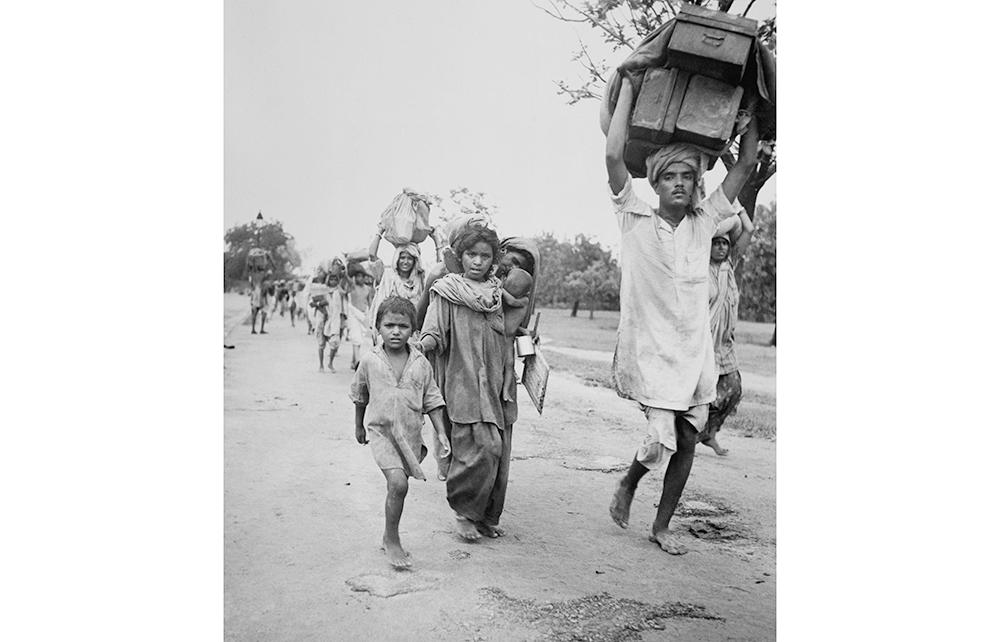It’s a little-remembered fact that the Indian subcontinent once had the world’s largest Muslim population. Numbering 95 million, they were almost a quarter of India’s total population. Partition in 1947 still left them as the world’s largest Muslim minority, at 15 per cent of Hindu-majority India. More than 70 years later, no single study has successfully explained the consequences of that transition. This latest attempt, though often original and incisive, fails to bridge that gap, partly because it ends in 1977, thereby largely ignoring the major turning point that brought to power India’s current Hindu-chauvinist rulers.
The underlying premise of the book is a rather arbitrary division of Indian Muslims into two neat categories: Muslim nationalists, who opted for secession and Pakistan; and nationalist Muslims, who stayed on and did a Faustian deal with the Hindu-majority Congress party to retain their orthodox personal law. What that view fails to explain is how so many diverse Muslim intellectuals and politicians travelled back and forth between these two poles. A prime example was Jinnah, once loyal to India’s nationalist Congress as its ‘ambassador of Hindu-Muslim goodwill’, but who ended up as the founder-leader of Pakistan. The binary model completely fails to explain this cultural anomaly of a whisky-drinking, pork-eating Muslim clad in Savile Row suits founding a theocratic state.
Pratinav Anil is unsparing in his critique of the Congress party’s Hindu-majoritarian arrogance, which alienated Jinnah and so many other Muslim intellectuals. Those Muslims who stayed on in India, most of them unable to migrate, had to be grateful for second-class citizenship, denied fair political representation in India’s first-past-the-post electoral system, their lingua franca of Urdu starved of public funding.
The Faustian bargain for Muslim acquiescence was Islamic sharia law becoming enshrined in India at the very moment it was being jettisoned in Muslim countries, including even Pakistan. Anil mentions my own secularist father’s doomed attempts as a member of India’s Constituent Assembly, backed by women’s representatives, to push through a common civil code, the bugbear of Muslim clerics.
This book successfully punctures the myth that the secularism of Nehru’s India was a golden age for Indian Muslims. The rhetoric of secularism never trumped the reality of religious sentiment, given primacy in India’s constitution. Most telling of all were the mass pogroms that Indian Muslims have frequently endured since independence, some orchestrated by Congress itself, others by more extreme Hindu groups. As chilling as the numbers killed has been the often cynical Machiavellian use of communal riots by political mafias out to commandeer votes.
Where Anil is far less even-handed is in his dismissal of almost all Muslim agency as a ploy by aristocratic elites, called ashrafs, to hog the loaves and fishes doled out by Congress, feathering their own nests at the expense of the poor Muslim masses. ‘Postcolonial India may have been an inhospitable place for ordinary Muslims,’ he says, ‘but the Muslim rentier perhaps had never had it so good.’ He attributes much of this success to clever lobbying:
If adequately apologetic and suffused with nationalist rhetoric, a petitioner’s letter could make functionaries see reason. In a setting where literacy was at a discount and hierarchical deference everywhere, what ultimately mattered was the possession of a rather scarce political resource, an epistolary fluency in effect the preserve of the upper class.
What this ignores is the wider Indian political reality in which elite advantages of wealth, education and caste have trumped socio-economic need almost everywhere. Why would Muslim society be the exception? Muslim intellectuals, some committed Marxists, have been at least as active as their Hindu counterparts in organising socialist protest movements. Focusing on the misleading size of a few princely pensions, much devalued by inflation, Anil ignores the near-annihilation of the Muslim lesser gentry by Nehruvian land reforms.
He is especially harsh in his judgment of campaigns by Muslim elites to defend the autonomy of Aligarh Muslim University, founded at the start of the 20th century to redress Muslim educational disadvantage. Aligarh is no more elitist than most other universities founded by India’s myriad castes and communities. It’s all too easy for a Hindu academic ensconced in Oxford to blame Aligarh’s beleaguered custodians for fighting to defend their autonomy.
A final word on this book’s very distinctive and arcane vocabulary. Emic, carceral, prosopography, heteroclite, cathexis, chiliastic, coupure, transhumance, partocracy, propaeduitic, acephalous, epigoni, peripeteia – surely that kind of language is best avoided by even our most scholarly academics.






Comments